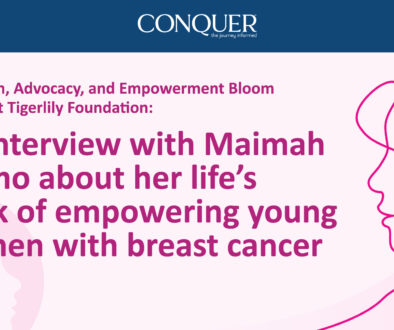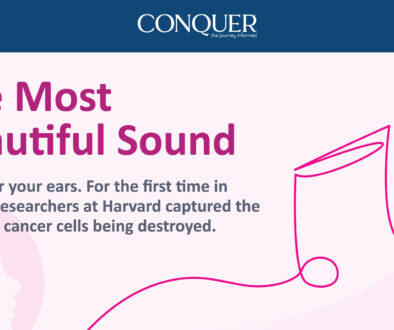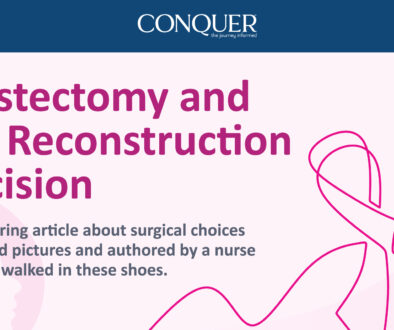Normalizing Therapy
By Javacia Harris Bowser
You must be so glad that’s all behind you now.
Well-meaning people say these words to you a lot after you finish active treatment for breast cancer.
Slash. Poison. Burn. Done. That’s how they think this goes.
They think that after surgery, chemotherapy, radiation, and a report from your doctor declaring that you’re “cancer-free” you should be “over it.” You should be ready to move on.
But even when cancer is no longer in your body it is still on your mind – always. And if you’re a woman diagnosed with metastatic breast cancer you know you will be fighting for your life for the rest of your life.
But I can’t be angry at people for thinking I could so easily close the door on cancer because I thought the same thing.
That’s why I didn’t see my therapist until 15 months after my diagnosis.
No, I’ve never let the stigma attached to therapy keep me from seeking help. But during my active treatment – which also happened to take place during a global pandemic – I convinced myself I didn’t have the time or energy for therapy. I was juggling treatment with running my freelance writing and coaching business. Besides, I was consistently logging on for meetings with my virtual support group and the sessions were led by a psychotherapist. I figured that was good enough.
And after treatment each day I found a new reason to celebrate. Cookies no longer taste like sand. My stomach isn’t queasy. I have eyebrows again!
But one day as I was taking a walk through my neighborhood – something I did every day while going through treatment in an effort to feel like myself again – the smells of the late spring air sent me drifting back to the early days of chemo. The rush of memories took my breath away and nearly buckled my knees.
I hurried home to my journal to try to make sense of the fear I felt. I tried to explain it to my husband, too. But I, a writer, couldn’t find the words.
It was time to go back to therapy.
My therapist helped me realize that I wasn’t afraid of dying, but afraid of cancer making life not worth living. But through therapy I also realized that cancer will only do this if I allow it.
I wish I had seen my therapist throughout my treatment. Then perhaps I wouldn’t have bottled up all the anger, confusion, and hopelessness I felt. Perhaps I wouldn’t have let those feelings brew into the perfect storm that nearly rocked me to my core.
The American Cancer Society states that, “A cancer diagnosis can affect the emotional health of patients, families, and?caregivers.”
You and your loved ones may experience anxiety, distress, and depression – especially as roles shift at home or work.
As a Black woman, I know that my cancer diagnosis is just one of the many reasons I need to be on my therapist’s couch. Researchers have found that the stressors that impact people of color – such as racism and racial trauma — are chronic and this stress can cause premature aging and increase health vulnerability. “Weathering” is the term coined for this.
According to the?Substance Abuse and Mental Health Services Administration, Black adults are more likely to report feeling sad and hopeless, yet in 2017 only 30% of Black adults who needed mental health care received it.
National Minority Mental Health Awareness Month was established in 2008 to help fight the stigma surrounding mental illness and encouraging people of color to get the help they need.
Therapy for Black Girls is an online community, podcast, and more dedicated to encouraging the mental wellness of Black women and girls. The platform offers a guide to help you get started with therapy, including a directory of therapists.
If you’re struggling to make time for therapy, try the online and mobile therapy services of TalkSpace. If you can’t afford therapy talk to your doctor about free options. In my hometown of Birmingham, Alabama, for example, the Forge Breast Cancer Survivor Center offers free counseling to cancer patients and survivors. Contact clinics in your area that may offer services for free or on a sliding scale or a local university that trains graduate students to be counselors or psychologists.
Let’s normalize going to therapy. And let’s make therapy accessible for all.
Javacia Harris Bowser is a freelance writer and essayist based in Birmingham, Alabama, and the founder of See Jane Write – a website and community for women who write and blog.



